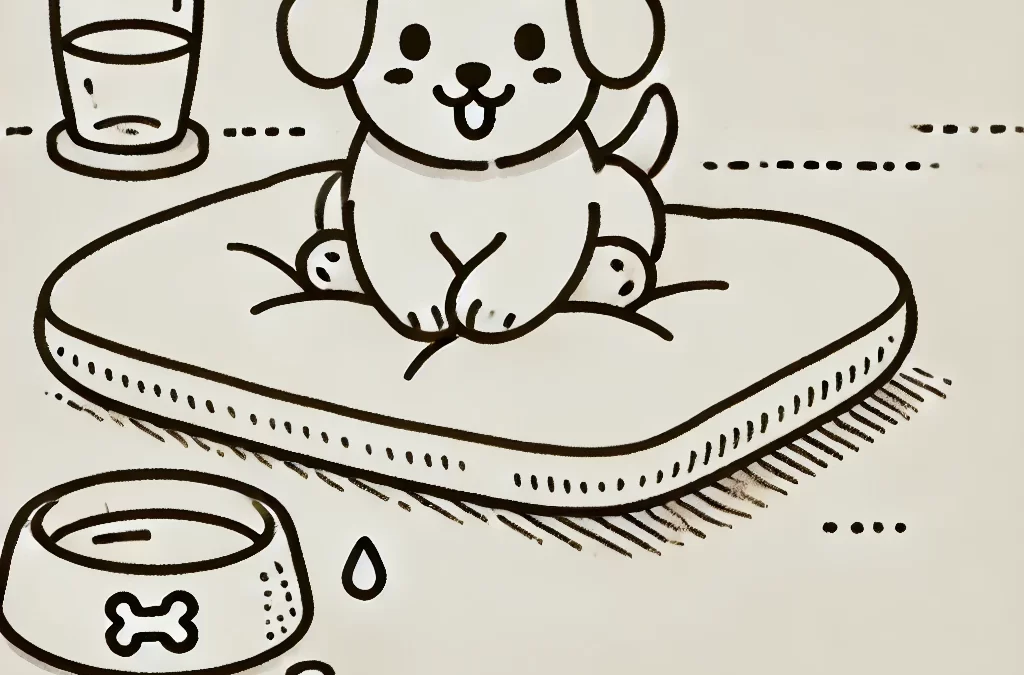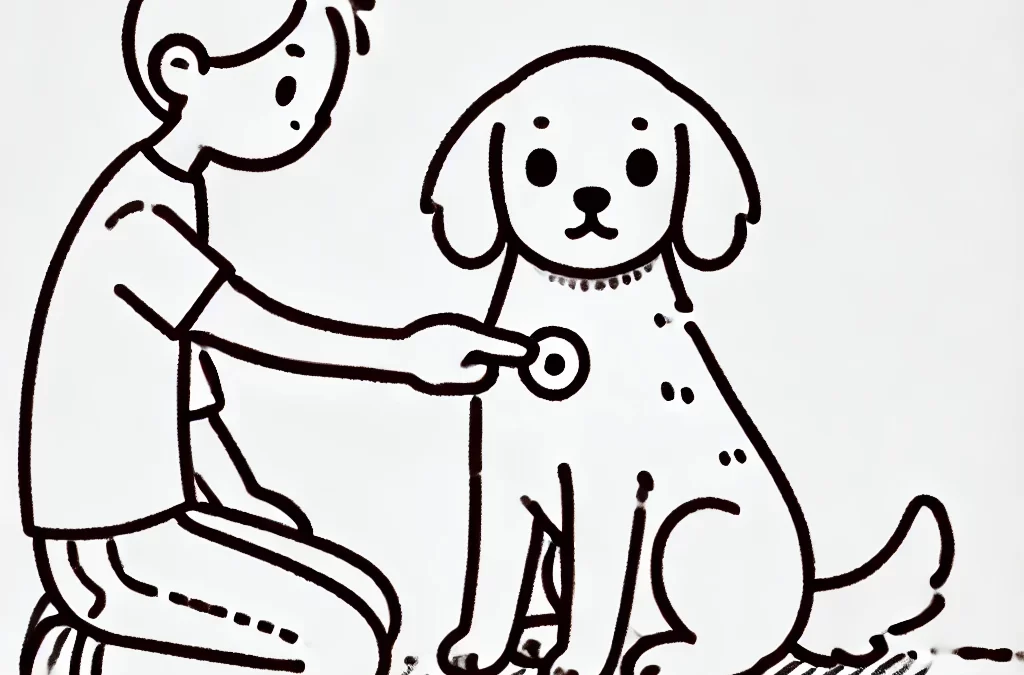
von TCMVET | 11. Februar 2025 | Krebs und Tumore bei Hunden
Für Tierbesitzer, die mit der herzzerreißenden Diagnose Krebs bei ihren geliebten Katzen konfrontiert werden, kann der Weg voller Ungewissheit sein. Während herkömmliche Behandlungen wie Operation, Chemotherapie und Bestrahlung häufig empfohlen werden, suchen viele nach Alternativen, um diese Optionen zu ergänzen oder in einigen Fällen einen ganzheitlichen Ansatz für die Gesamtversorgung zu schaffen. Einer der vielversprechendsten Bereiche ist der Einsatz von natürliche Heilmittel um das Wachstum von Tumoren bei Katzen zu verlangsamen und bietet nicht nur körperliche Linderung, sondern auch emotionalen Trost für Tier und Besitzer.
Die Kraft der Natur im Tumormanagement
Natürliche Heilmittel nutzen die therapeutische Kraft von Pflanzen, Kräutern und anderen natürlichen Substanzen, um die Heilung zu fördern, Entzündungen zu reduzieren und das Immunsystem zu stärken. Im Gegensatz zu herkömmlichen Behandlungen, die sich in erster Linie auf die Beseitigung von Krebszellen konzentrieren, zielen natürliche Heilmittel darauf ab, die Fähigkeit des Körpers zu verbessern, den Krebs von innen heraus zu bekämpfen. Dieser ganzheitliche Ansatz zielt nicht nur auf den Tumor selbst ab, sondern versucht, das Gleichgewicht des gesamten Systems wiederherzustellen und bietet eine umfassende Lösung für die Behandlung von Krebs bei Katzen.
Wichtige natürliche Heilmittel zur Verlangsamung des Tumorwachstums bei Katzen
- Kurkuma (Curcuma longa)
Eines der bekanntesten natürlichen Heilmittel gegen Krebs, Kurkuma enthält eine Verbindung namens Kurkuma, das nachweislich starke entzündungshemmende, antioxidative und krebshemmende Eigenschaften besitzt. Curcumin kann das Tumorwachstum verlangsamen, indem es die Ausbreitung von Krebszellen hemmt und die Apoptose (programmierter Zelltod) fördert. Darüber hinaus kann es die Leberfunktion unterstützen, die für die Entgiftung, insbesondere während der Krebsbehandlung, von entscheidender Bedeutung ist.
- Cannabidiol (CBD) Öl
CBD-Öl, aus Hanf gewonnen, ist ein weiteres wirksames Naturheilmittel, das aufgrund seines Potenzials in der Krebsbehandlung Aufmerksamkeit erregt. Studien haben gezeigt, dass CBD das Tumorwachstum verlangsamen kann, indem es den Zelltod in Krebszellen herbeiführt und Entzündungen reduziert. Darüber hinaus kann es die Lebensqualität Ihrer Katze verbessern, indem es Schmerzen und Ängste lindert, die oft mit Krebsbehandlungen einhergehen.
- Reishi-Pilz (Ganoderma lucidum)
Reishi-Pilze werden in der Traditionellen Chinesischen Medizin (TCM) schon seit langem wegen ihrer immunstärkenden Eigenschaften verwendet. Sie enthalten Beta-Glucane, die die Immunfunktion stärken und die Fähigkeit des Körpers fördern, Krebs zu bekämpfen. Indem sie das Immunsystem unterstützen und die allgemeine Vitalität verbessern, Reishi-Pilze kann dazu beitragen, das Tumorwachstum zu verlangsamen und die Fähigkeit Ihrer Katze zu verbessern, mit dem Krebs fertig zu werden.
- Astragalus-Wurzel (Astragalus membranaceus)
Oft in der TCM verwendet, Astragalus ist bekannt für seine Fähigkeit, die Immunfunktion zu stärken und Entzündungen zu reduzieren. Indem es die Produktion weißer Blutkörperchen anregt und die Immunreaktion verstärkt, kann Astragalus dem Körper helfen, Krebs effektiver zu bekämpfen und das Fortschreiten von Tumoren zu verlangsamen.
- Essiac-Tee
Essiac-Tee, eine Mischung aus vier Kräutern (Klettenwurzel, Sauerampfer, Ulmenrinde und Indischer Rhabarber), ist für seine entgiftenden Eigenschaften und potenziellen Antikrebseffekte bekannt. Der Tee soll das Immunsystem stärken, den Körper entgiften und das Wachstum von Krebszellen hemmen.
TCMVET Baituxiao: Eine moderne Interpretation alter Weisheiten
Für Tierbesitzer, die eine gezielte, moderne Anwendung dieser alten Heilprinzipien suchen, TCMVET Baituxiao zeichnet sich als Produkt aus, das speziell zur Behandlung von Tumoren bei Haustieren entwickelt wurde. Durch die Kombination traditioneller chinesischer Kräuter, die für ihre krebshemmenden Eigenschaften bekannt sind, wie Bai Hua, She, She Cao Und Verdammt, Gui, mit modernen Fortschritten in der pflanzlichen Nahrungsergänzung bietet TCMVET Baituxiao einen ausgewogenen Ansatz zur Tumorbehandlung.
- Reduzierung des Tumorwachstums: Die Kräuter in TCMVET Baituxiao werden sorgfältig ausgewählt, um gemeinsam das Tumorwachstum zu hemmen und die Größe bestehender Tumore zu reduzieren. Die Rezeptur hilft, Krebszellen zu kontrollieren und gleichzeitig die allgemeine Gesundheit zu fördern.
- Unterstützung der Immunität: Durch die Stärkung des Immunsystems hilft TCMVET Baituxiao dem Körper Ihrer Katze, Krebs wirksamer zu bekämpfen und ein Wiederauftreten zu verhindern.
- Minimierung der Nebenwirkungen: Einer der größten Vorteile von TCMVET Baituxiao ist seine entzündungshemmende und schmerzlindernde Wirkung, die dazu beiträgt, dass sich Katzen während der Behandlung wohlfühlen.
Die Einbeziehung von TCMVET Baituxiao in die Pflegeroutine Ihrer Katze kann im Rahmen eines integrierten, ganzheitlichen Ansatzes zur Tumorbehandlung erhebliche Vorteile bieten.
Warum sollten Sie für Ihre Katze natürliche Heilmittel wählen?
Die Wahl natürlicher Heilmittel zur Verlangsamung des Tumorwachstums bei Katzen bedeutet nicht, herkömmliche Behandlungen zu ersetzen; es geht vielmehr darum, die Fähigkeit des Körpers zur Selbstheilung zu verbessern. Natürliche Heilmittel bieten eine Alternative zu den schweren Nebenwirkungen, die häufig bei Chemotherapie und Bestrahlung auftreten, und sie wirken in Verbindung mit herkömmlichen Behandlungen, um die allgemeine Gesundheit und das Wohlbefinden zu verbessern.
Durch den Einsatz natürlicher Heilmittel wie Kurkuma, CBD-Öl, Reishi-Pilze, Und Astragalus, neben Produkten wie TCMVET Baituxiaokönnen Tierbesitzer ihren Katzen dabei helfen, sich besser zu fühlen, länger zu leben und dem Krebs mit Widerstandskraft zu begegnen.
Abschließende Gedanken
Die Behandlung eines Tumors bei einer Katze mit natürlichen Heilmitteln ist ein einfühlsamer, ganzheitlicher Ansatz, der darauf abzielt, den Körper zu nähren und zu unterstützen, anstatt nur den Tumor zu bekämpfen. Diese Heilmittel können herkömmliche Behandlungen ergänzen, indem sie das allgemeine Wohlbefinden verbessern, die Immunität stärken und Entzündungen reduzieren. Konsultieren Sie immer Ihren Tierarzt, bevor Sie neue Behandlungen hinzufügen, um die bestmögliche Pflege für Ihren Katzengefährten sicherzustellen.

von TCMVET | 10. Februar 2025 | Krebs und Tumore bei Hunden
Krebs bei Katzen ist eine niederschmetternde Diagnose, aber das Verständnis der Rolle des Immunsystems kann Erkenntnisse darüber liefern, wie wir unseren Katzengefährten helfen können. Das Immunsystem ist der natürliche Abwehrmechanismus unseres Körpers, der unermüdlich daran arbeitet, Infektionen, abnormale Zellen und sogar potenzielle Tumore abzuwehren. Leider können Tumore das Immunsystem manchmal umgehen, wodurch Krebs wachsen und sich ausbreiten kann. Daher stellt sich die Frage: Wie können wir das Immunsystem unserer Katze stärken, um Krebs zu bekämpfen und das Risiko einer Tumorbildung zu verringern?
Der Zusammenhang zwischen Tumoren bei Katzen und dem Immunsystem
Das Immunsystem spielt eine entscheidende Rolle bei der Verhinderung der Entstehung von Krebs. Es erkennt und zerstört abnormale Zellen, einschließlich solcher, die sich möglicherweise zu Tumoren entwickeln könnten. Einige Krebszellen sind jedoch in der Lage, das Immunsystem zu umgehen oder zu unterdrücken, wodurch es für den Körper schwieriger wird, sie zu erkennen und zu zerstören.
Bei Katzen kann diese Immunflucht auf verschiedene Weise erfolgen. Tumore können Immunkontrollpunkte oder Mechanismen entwickeln, die verhindern, dass Immunzellen sie angreifen. Sie können auch Substanzen produzieren, die Immunreaktionen unterdrücken. Dies bedeutet, dass selbst wenn das Immunsystem einer Katze stark ist, bestimmte Krebsarten dennoch fortschreiten können, wenn das Immunsystem nicht optimal funktioniert.
Indem Sie jedoch das Immunsystem Ihrer Katze unterstützen und stärken, können Sie ihrem Körper helfen, diese abnormalen Zellen zu bekämpfen und möglicherweise das Fortschreiten bestehender Tumore verlangsamen oder das Risiko der Entstehung neuer Tumore verringern.
Wie das Immunsystem bei Katzen funktioniert
Bevor wir uns mit Möglichkeiten zur Stärkung des Immunsystems befassen, ist es wichtig zu verstehen, wie das Immunsystem von Katzen funktioniert. Wie Menschen verfügen Katzen über ein komplexes Abwehrnetzwerk aus verschiedenen Zellen und Organen, die zusammenarbeiten, um sie vor Krankheiten zu schützen. Zu den wichtigsten Akteuren gehören:
- Weiße Blutkörperchen (T-Zellen, B-Zellen, Makrophagen): Diese Zellen sind für die Identifizierung und den Angriff schädlicher Eindringlinge wie Viren und Krebszellen verantwortlich.
- Lymphknoten und Milz: Diese Organe filtern Lymphflüssigkeit bzw. Blut und fangen schädliche Krankheitserreger und abnorme Zellen ab.
- Antikörper: Diese von B-Zellen produzierten Proteine helfen bei der Neutralisierung von Krankheitserregern und der Bekämpfung von Krebszellen.
- Zytokine: Dies sind Signalmoleküle, die dabei helfen, die Immunantwort zu koordinieren und sicherzustellen, dass die Immunzellen richtig funktionieren.
Die Rolle des Immunsystems bei der Krebsprävention besteht in seiner Fähigkeit, mutierte oder beschädigte Zellen zu erkennen und zu zerstören, bevor sie krebsartig werden. Wenn das Immunsystem jedoch geschwächt ist, kann es diese Aufgaben weniger effektiv ausführen, wodurch Krebszellen ungehindert wachsen können.
Möglichkeiten zur Stärkung des Immunsystems Ihrer Katze
Es gibt verschiedene Strategien, um das Immunsystem Ihrer Katze zu stärken, sowohl durch Ernährungs- und Lebensstiländerungen als auch durch gezielte Nahrungsergänzungsmittel. Im Folgenden finden Sie einige Möglichkeiten, die Immunität Ihrer Katze zu stärken und möglicherweise das Tumorrisiko zu senken:
1. Sorgen Sie für eine ausgewogene, nährstoffreiche Ernährung
Eine gesunde Ernährung ist die Grundlage eines starken Immunsystems. Katzen benötigen eine ausgewogene Ernährung, die reich an wichtigen Nährstoffen wie Proteinen, Vitaminen und Mineralien ist. Eine hochwertige, artgerechte Ernährung, die der Nahrung in freier Wildbahn entspricht, ist für die Unterstützung der allgemeinen Gesundheit und der Immunfunktion von entscheidender Bedeutung.
- Antioxidantien: Lebensmittel, die reich an Antioxidantien wie den Vitaminen A, C und E sind, können helfen, Immunzellen vor oxidativen Schäden zu schützen. Antioxidantien neutralisieren freie Radikale im Körper, die das Immunsystem schwächen und zur Krebsentstehung beitragen können.
- Omega-3-Fettsäuren: Omega-3-Fettsäuren, die in Fischöl und bestimmten Pflanzenölen enthalten sind, haben entzündungshemmende Eigenschaften, die zur Regulierung der Immunreaktionen beitragen. Sie können eine gesunde Immunfunktion unterstützen und können auch dazu beitragen, mit Krebs verbundene Entzündungen zu reduzieren.
- Zink und Selen: Beide Mineralien sind für eine ordnungsgemäße Immunfunktion unerlässlich und an der Produktion und Reaktion von Immunzellen beteiligt.
2. Integrieren Sie immunstärkende Nahrungsergänzungsmittel
Es gibt verschiedene Nahrungsergänzungsmittel, die speziell zur Unterstützung des Immunsystems von Katzen entwickelt wurden. Konsultieren Sie immer Ihren Tierarzt, bevor Sie der Ernährung Ihrer Katze Nahrungsergänzungsmittel hinzufügen. Einige gängige Immunverstärker sind:
- Kolostrum: Kolostrum, eine Milch, die Säugetiere unmittelbar nach der Geburt produzieren, enthält Antikörper und Wachstumsfaktoren, die die Immunfunktion unterstützen. Es kann die Immunaktivität bei Katzen steigern und zum Schutz vor Krebs beitragen.
- Pilzextrakte: Bestimmte Pilze wie Reishi und Maitake sind für ihre immunstärkenden Eigenschaften bekannt. Diese Pilze enthalten Verbindungen, die Immunzellen aktivieren und ihre Fähigkeit verbessern können, Krebszellen abzuwehren.
- Probiotika: Ein gesundes Darmmikrobiom ist entscheidend für ein gesundes Immunsystem. Probiotika können helfen, eine ausgewogene Darmflora aufrechtzuerhalten, was wiederum die Immunfunktion unterstützt.
3. Stress abbauen
Chronischer Stress unterdrückt bekanntermaßen das Immunsystem und macht es weniger wirksam bei der Abwehr von Krebs und anderen Krankheiten. Katzen, die über längere Zeiträume gestresst sind, sind anfälliger für Krankheiten, einschließlich Krebs. So reduzieren Sie den Stress Ihrer Katze:
- Sorgen Sie für eine sichere, ruhige Umgebung: Katzen sind sensible Wesen und können durch Veränderungen in ihrer Umgebung oder Routine leicht gestresst werden. Sorgen Sie dafür, dass Ihre Katze einen ruhigen, sicheren Ort hat, an den sie sich bei Bedarf zurückziehen kann.
- Spiel und geistige Anregung: Regelmäßige Spielzeit und Beschäftigung können helfen, Stress abzubauen. Interaktives Spielzeug, Kratzbäume und Futterpuzzles können Ihre Katze geistig stimulieren und durch Langeweile verursachten Stress verhindern.
- Konsistenz: Versuchen Sie, für Ihre Katze einen gleichbleibenden Tagesablauf beizubehalten, einschließlich Fütterungszeiten, Spielzeit und Fellpflege. Vorhersehbarkeit gibt Katzen ein Gefühl der Sicherheit und reduziert Ängste.
4. Regelmäßige Tierarztuntersuchungen und Screenings
Regelmäßige tierärztliche Untersuchungen sind wichtig, um die allgemeine Gesundheit Ihrer Katze zu erhalten und sicherzustellen, dass ihr Immunsystem optimal funktioniert. Routineuntersuchungen und -vorsorgeuntersuchungen ermöglichen die frühzeitige Erkennung potenzieller Gesundheitsprobleme, einschließlich Tumoren. Je früher ein Tumor erkannt wird, desto besser sind die Chancen auf eine erfolgreiche Behandlung.
- Impfungen: Halten Sie die Impfungen Ihrer Katze auf dem neuesten Stand, um Infektionen vorzubeugen, die das Immunsystem schwächen und zur Krebsentwicklung beitragen können.
- Bluttests: Regelmäßige Blutuntersuchungen können helfen, das Immunsystem Ihrer Katze zu überwachen und etwaige Probleme frühzeitig zu erkennen.
5. Erwägen Sie ganzheitliche Behandlungen
Einige ganzheitliche Behandlungen wie Akupunktur, Kräuter und Homöopathie können das Immunsystem stimulieren und die Krebsbehandlung unterstützen. Beispielsweise wurde gezeigt, dass bestimmte chinesische Kräuter die Immunreaktion verbessern und möglicherweise konventionelle Behandlungen für Katzen mit Krebs ergänzen könnten.
Fazit: Das Immunsystem Ihrer Katze stärken
Das Immunsystem spielt eine entscheidende Rolle bei der Vorbeugung und Bekämpfung von Krebs bei Katzen. Tumore können sich manchmal der Abwehr des Immunsystems entziehen, aber eine ausgewogene Ernährung, immunstärkende Nahrungsergänzungsmittel, Stressabbau und regelmäßige tierärztliche Betreuung können die Chancen Ihrer Katze verbessern, gesund zu bleiben und das Risiko einer Tumorentwicklung zu verringern.
Obwohl es keine todsichere Methode gibt, Krebs vorzubeugen, bietet die Stärkung des Immunsystems Ihrer Katze durch diese Maßnahmen ihr die bestmögliche Chance, über Jahre hinweg gesund zu bleiben. Arbeiten Sie immer eng mit Ihrem Tierarzt zusammen, um einen Plan zur Stärkung des Immunsystems zu entwickeln, der auf die individuellen Bedürfnisse Ihrer Katze zugeschnitten ist. Mit der richtigen Pflege kann das Immunsystem Ihrer Katze zu einem beeindruckenden Verbündeten im Kampf gegen Krebs werden.

von TCMVET | 9. Februar 2025 | Krebs und Tumore bei Hunden
Wenn bei Ihrer Katze ein Tumor diagnostiziert wird, kann das sowohl für Sie als auch für Ihren Katzengefährten eine überwältigende Erfahrung sein. Traditionelle Behandlungsmöglichkeiten konzentrieren sich oft auf Operationen, Chemotherapie oder Medikamente, aber es gibt einen neuen Ansatz, der sich auf ganzheitliche Gesundheit konzentriert: Mäßige körperliche Betätigung. Die Idee mag überraschend klingen, aber Untersuchungen legen nahe, dass Bewegung ein wertvoller Verbündeter bei der Stärkung des Immunsystems Ihrer Katze sein kann, was möglicherweise ihre Lebensqualität verbessert und ihre Genesung unterstützt. In diesem Artikel untersuchen wir, wie moderate Bewegung das Immunsystem und die allgemeine Gesundheit Ihrer Katze während einer Tumorbehandlung verbessern kann.
Der Zusammenhang zwischen Bewegung und Immunität: Was Sie wissen müssen
Bevor wir in die Details eintauchen, wollen wir zunächst die Wissenschaft hinter Bewegung und Immunsystem verstehen. Sowohl bei Menschen als auch bei Tieren verbessert regelmäßige körperliche Aktivität nachweislich die Immunfunktion, indem sie die Produktion weißer Blutkörperchen (die Infektionen bekämpfen) anregt, die Durchblutung verbessert und die Entfernung von Giftstoffen aus dem Körper fördert. Dies bedeutet, dass selbst während einer Krebsbehandlung sanfte Bewegung die natürlichen Abwehrmechanismen Ihrer Katze unterstützen kann, sodass sie Infektionen leichter bekämpfen und sich von Krankheiten erholen kann.
Warum Mäßigung der Schlüssel ist
Moderates Training ist im Gegensatz zu intensiver körperlicher Betätigung ein sanfter Ansatz, der darauf abzielt, die Beweglichkeit zu fördern, ohne den Körper zu belasten. Für eine Katze mit einem Tumor kann Überanstrengung schädlich sein und zu Müdigkeit führen oder ihre Symptome verschlimmern. Daher ist es wichtig, ein Gleichgewicht zu finden: Das Ziel besteht darin, Aktivitäten einzubauen, die Spaß machen und anregend sind, den Körper Ihrer Katze jedoch nicht belasten.
Wie können Sie also sicherstellen, dass Ihre Katze ausreichend Bewegung bekommt?
1. Kurze Spielsitzungen: Fokus auf geistiges Engagement
Katzen mit Tumoren haben möglicherweise nicht mehr das gleiche Energieniveau wie vor der Diagnose, und es ist wichtig, sie nicht zu überfordern. Statt langer Spielzeiten sollten Sie kurze, häufige Spielsitzungen. Zehn bis fünfzehn Minuten interaktives Spielen mit ihren Lieblingsspielzeugen können ausreichen, um Körper und Geist zu stimulieren. Ob es sich um einen Federstab, einen Laserpointer oder einen einfachen Ball handelt, die geistige Beschäftigung Ihrer Katze ist genauso wichtig wie körperliche Aktivität.
Diese Spieleinheiten helfen, den Muskeltonus und die Flexibilität zu erhalten und fördern gleichzeitig die Durchblutung, was alles zu einer verbesserten Immunität beiträgt. Der Schlüssel ist Beständigkeit – versuchen Sie, diese Einheiten zu einem regelmäßigen Teil des Tages Ihrer Katze zu machen, und passen Sie die Länge jeder Einheit an ihr Wohlbefinden an.
2. Fördern Sie die Erkundung durch sichere, einfache Bewegungen
Wenn Ihre Katze es gewohnt ist, aktiv und neugierig zu sein, ermutigen Sie sie dazu Erkunden Sie stressfreie Umgebungen in Ihrem Zuhause. Katzen lieben es, umherzuwandern, und selbst kleine, kontrollierte Bewegungen können von Vorteil sein. Lassen Sie sie beispielsweise zwischen Räumen hin- und hergehen oder neue Bereiche des Hauses erkunden. Sorgen Sie für eine sichere Umgebung, frei von Hindernissen, die Verletzungen verursachen könnten, und stellen Sie sicher, dass es in der Nähe gemütliche Ruheplätze gibt, wenn sie Pausen brauchen.
Wenn Sie den ganzen Tag über Bewegungsmöglichkeiten haben, wird die Lymphdrainage gefördert, was zur Entgiftung beitragen kann. Diese Art sanfter Bewegung kann auch dazu beitragen, die Muskelmasse und die Gesundheit der Gelenke zu erhalten, was für das allgemeine Wohlbefinden unerlässlich ist.
3. Integrieren Sie gemütliche Spaziergänge oder Zeit im Freien
Für Katzen, die gerne draußen sind (oder wenn Sie ein sicheres Außengehege haben), leichte Spaziergänge kann eine fantastische Möglichkeit sein, Bewegung zu fördern. Wenn Sie mit Ihrer Katze an der Leine spazieren gehen (wenn sie sich dabei wohl fühlt), kann sie die Umgebung erkunden und ihre Beine vertreten, was die Durchblutung fördert und für Abwechslung sorgt.
Halten Sie die Übungen jedoch immer kurz und vermeiden Sie heißes oder feuchtes Wetter, da dies den Körper Ihrer Katze zusätzlich belasten kann. Das Ziel ist, diese Outdoor-Sitzungen angenehm und stressfrei, nicht anstrengend zu gestalten.
4. Massage und Dehnung: Indirekte Übung
Wenn Ihre Katze einen Tumor hat, kann es sein, dass sie in bestimmten Bereichen ihres Körpers Verspannungen oder Beschwerden verspürt. Sanfte Massage kann eine hervorragende Möglichkeit sein, die Durchblutung zu verbessern, ohne dass sich Ihre Katze körperlich anstrengen muss. Sanfte Streicheleinheiten und leichtes Dehnen können die Durchblutung fördern und Steifheit vorbeugen.
Manche Katzen genießen es auch, sanft gedehnt zu werden – insbesondere am Rücken und an den Beinen. Diese Bewegungen können Muskelschwund vorbeugen und die Entspannung fördern. Beobachten Sie wie immer die Reaktionen Ihrer Katze. Wenn sie sich unwohl fühlt oder Widerstand leistet, lassen Sie nach und versuchen Sie etwas Sanfteres.
5. Passen Sie den Ansatz an ihre Bedürfnisse an
Jede Katze ist einzigartig und ihre Reaktion auf Bewegung variiert je nach Art und Stadium des Tumors, ihrem Alter und ihrem allgemeinen Gesundheitszustand. Es ist wichtig, Passen Sie Ihren Ansatz dem Zustand Ihrer Katze an. Manche Katzen brauchen mehr Ruhe, während andere mit etwas mehr Bewegung gut zurechtkommen. Sprechen Sie mit Ihrem Tierarzt, um zu beurteilen, wie viel Bewegung für die spezielle Situation Ihrer Katze angemessen ist.
Das richtige Gleichgewicht zwischen Ruhe und Aktivität kann Ihrer Katze helfen, sich wohler zu fühlen, ihr Energieniveau zu steigern und ihr Immunsystem während der Behandlung zu unterstützen. Beobachten Sie immer das Energieniveau und das Verhalten Ihrer Katze, um sicherzustellen, dass sie sich nicht überanstrengt.
Die Rolle von Ernährung und Nahrungsergänzungsmitteln
Obwohl Bewegung eine entscheidende Rolle bei der Stärkung des Immunsystems spielt, ist es wichtig, sie mit einer richtigen Ernährung und Nahrungsergänzungsmitteln zu kombinieren. Es ist wichtig, Ihrer Katze hochwertiges, ernährungsphysiologisch ausgewogenes Futter anzubieten, insbesondere während einer Krebsbehandlung. Erwägen Sie außerdem die Einbeziehung immunstärkende Nahrungsergänzungsmittel wie Omega-3-Fettsäuren, Antioxidantien und bestimmte pflanzliche Heilmittel zur Stärkung ihres Abwehrsystems.
Pflanzliche Nahrungsergänzungsmittel wie Chuanxiong (Szechuan-Liebstöckel), Reishi-Pilze, Und Kurkuma kann bei Krebspatienten unterstützende Eigenschaften haben. Konsultieren Sie immer Ihren Tierarzt, bevor Sie der Ernährung Ihrer Katze neue Nahrungsergänzungsmittel hinzufügen.
Fazit: Ein sanfter Weg zur Heilung
Man könnte meinen, eine Diagnose wie Krebs bedeute, dass Ihre Katze sich die ganze Zeit ausruhen müsse, aber die richtige Menge an Mäßige körperliche Betätigung kann eine wichtige Rolle bei der Erhaltung ihrer Gesundheit und der Stärkung des Immunsystems spielen. Durch kurze Spieleinheiten, gemütliche Spaziergänge, sicheres Erkunden und gelegentliche Massagen können Sie Ihrer Katze helfen, aktiv zu bleiben und so die natürlichen Heilungsprozesse ihres Körpers zu unterstützen.
Denken Sie daran, das Ziel ist Mäßigung— Bewegung sollte nie erzwungen werden, sondern auf eine Weise gefördert werden, die dem Wohlbefinden Ihrer Katze entspricht. Hören Sie immer auf die Signale Ihrer Katze und arbeiten Sie eng mit Ihrem Tierarzt zusammen, um sicherzustellen, dass die von Ihnen gewählten Aktivitäten sicher und nützlich sind. Mit Geduld, Liebe und der richtigen Menge an sanfter Bewegung können Sie Ihre Katze mit Kraft und Vitalität durch ihre Krebserkrankung begleiten.

von TCMVET | 7. Februar 2025 | Krebs und Tumore bei Hunden
Chemotherapie kann für Hunde mit Krebs eine lebensrettende Behandlung sein, geht aber oft mit Nebenwirkungen einher, die ihre Lebensqualität beeinträchtigen. Obwohl Chemotherapie bei Hunden im Allgemeinen weniger aggressiv ist als bei Menschen, erleben viele Hunde dennoch Verdauungsprobleme, Müdigkeit, Appetitverlust und geschwächtes Immunsystem. Verstehen, wie man Beschwerden minimieren und bieten eine angemessene Ernährungs- und unterstützende Pflege kann das Wohlbefinden Ihres Hundes während der Behandlung erheblich verbessern.
Häufige Nebenwirkungen der Chemotherapie bei Hunden
🐶 Magen-Darm-Probleme – Erbrechen, Durchfall, Übelkeit und Appetitlosigkeit treten häufig auf, da die Chemotherapie die sich schnell teilenden Magenschleimhautzellen beeinflusst.
🐶 Müdigkeit und Schwäche – Ihr Hund ist möglicherweise müder als sonst und bevorzugt längere Ruhephasen.
🐶 Geschwächte Immunität – Eine Chemotherapie kann die Anzahl der weißen Blutkörperchen verringern und Ihren Hund anfälliger für Infektionen machen.
🐶 Haarausfall (bei bestimmten Rassen) – Während die meisten Hunde nicht viel Fell verlieren, kann es bei Rassen mit kontinuierlich wachsendem Fell (z. B. Pudel) zu einem merklichen Haarausfall kommen.
🐶 Mundgeschwüre und Speichelfluss – Bei manchen Hunden entwickeln sich Wunden im Mund, die beim Fressen zu Beschwerden führen.
Wie können die Nebenwirkungen einer Chemotherapie gelindert werden?
1. Übelkeit und Erbrechen behandeln
- Füttern Sie kleine, häufige Mahlzeiten statt großer Portionen.
- Bieten Sie milde, leicht verdauliche Lebensmittel an wie gekochtes Huhn, weißer Reis und Kürbis.
- Ingwer (frisch oder in Form von Nahrungsergänzungsmitteln) kann helfen, Übelkeit zu lindern.
- Wenn das Erbrechen anhält, fragen Sie Ihren Tierarzt nach Medikamenten gegen Übelkeit wie Cerenia (Maropitant).
2. Appetitanregung und Vorbeugung von Gewichtsverlust
- Erwärmen Sie das Futter Ihres Hundes leicht, um das Aroma zu verbessern und ihn zum Fressen zu animieren.
- Probieren Sie kalorienreiche, nährstoffreiche Lebensmittel wie gekochte Eier, mageres Fleisch und Hüttenkäse.
- Erwägen Sie das Hinzufügen Knochenbrühe oder Ziegenmilch zu den Mahlzeiten für zusätzliche Flüssigkeits- und Nährstoffzufuhr.
- Wenn Ihr Hund das Futter verweigert, Appetitanreger wie Mirtazapin kann helfen.
3. Vorbeugung von Durchfall und Dehydrierung
- Verwenden Probiotika (z. B. FortiFlora) um die Darmgesundheit zu unterstützen.
- Füttern Sie Lebensmittel reich an lösliche Ballaststoffe wie Kürbis aus der Dose oder gedünstete Süßkartoffeln.
- Sorgen Sie für ständigen Zugang zu frischem Wasser und bieten Sie Elektrolytlösungen wenn der Durchfall anhält.
- Konsultieren Sie Ihren Tierarzt, wenn der Durchfall länger als 24 Stunden anhält oder Blut im Spiel ist.
4. Stärkung des Immunsystems
- Enthalten antioxidantienreiche Lebensmittel wie Blaubeeren, Kurkuma und Omega-3-Fettsäuren.
- Heilpilze (z. B. Truthahnschwanz, Reishi) kann bei der Modulation der Immunfunktion helfen.
- Vermeiden Sie Rohkost während der Chemotherapie, da eine geschwächte Immunität das Infektionsrisiko erhöht.
5. Umgang mit Müdigkeit und Schwäche
- Erlauben Sie Ihrem Hund zusätzliche Ruhe Aber fördern Sie leichte Aktivitäten wie kurze Spaziergänge zur Förderung der Durchblutung.
- Geben Sie eine gemütlicher, warmer Ruheraum mit weicher Bettwäsche.
- Erwägen Sie eine sanfte Massagetherapie oder Akupressur, um Verspannungen zu lösen und die Entspannung zu verbessern.
6. Pflege bei Mundgeschwüren und Speichelfluss
- Angebot weiche oder angefeuchtete Nahrung um die Reizung zu reduzieren.
- Verwenden Sie haustiersichere Mundspülungen (z. B. Chlorhexidinlösung) um Infektionen vorzubeugen.
- Aufgrund seiner beruhigenden und antibakteriellen Eigenschaften kann Kokosnussöl auf das Zahnfleisch aufgetragen werden.
Ergänzungsmittel, die helfen können
🌿 Mariendistel – Unterstützt die Entgiftung der Leber von Chemotherapeutika.
🌿 CBD Öl – Kann bei Schmerzlinderung, Übelkeit und Entzündungen helfen.
🌿 L-Glutamin – Unterstützt die Gesundheit der Darmschleimhaut und reduziert das Durchfallrisiko.
🌿 Omega-3-Fettsäuren (Fischöl) – Wirkt entzündungshemmend und unterstützt die Gesundheit des Immunsystems.
Wann sollten Sie Ihren Tierarzt kontaktieren?
🚨 Anhaltendes Erbrechen oder Durchfall, der länger als 24 Stunden anhält
🚨 Starke Lethargie oder Kollaps
🚨 Anzeichen einer Infektion (Fieber, geschwollene Lymphknoten, übermäßiges Hecheln)
🚨 Appetitlosigkeit für mehr als zwei Tage
🚨 Unkontrollierte Blutungen oder Blutergüsse
Abschließende Gedanken
Die Behandlung von Nebenwirkungen der Chemotherapie bei Hunden erfordert eine ausgewogener Ansatz Kombinieren Ernährungsunterstützung, häusliche Pflege und tierärztliche Beratung. Indem Sie die Reaktion Ihres Hundes genau beobachten und die notwendigen Anpassungen vornehmen, können Sie ihm helfen, die Behandlung zu meistern mit mehr Komfort und Belastbarkeit.

von TCMVET | 7. Februar 2025 | Krebs und Tumore bei Hunden
Die Entdeckung eines Knotens am Körper Ihres Hundes kann beunruhigend sein. Handelt es sich nur um einen harmlosen Fetttumor oder könnte es etwas Ernsteres sein? Viele Tierbesitzer zögern, den Knoten zu Hause zu beobachten oder zum Tierarzt zu eilen. Der Schlüssel liegt darin, den Knoten richtig einzuschätzen und die Warnsignale zu erkennen, die ärztlicher Behandlung bedürfen.
Dieser Artikel stellt eine praktischer, praxisnaher Leitfaden für Tierbesitzer zur Beurteilung der Beulen und Schwellungen ihres Hundes, sodass Sie fundierte Entscheidungen darüber treffen können, wann Sie einen Tierarzt aufsuchen sollten.
Schritt-für-Schritt-Anleitung zur Untersuchung des Knotens bei Ihrem Hund
🖐 1. Verwenden Sie den Ansatz der „Regel der Fünf“
Berücksichtigen Sie bei der Untersuchung eines Knotens bei Ihrem Hund diese fünf Faktoren:
1️⃣ Größe – Ist der Knoten kleiner als eine Erbse oder wird er mit der Zeit größer?
2️⃣ Form – Ist es rund und glatt oder unregelmäßig und holprig?
3️⃣ Textur – Ist es weich und beweglich oder fest und mit dem darunter liegenden Gewebe verbunden?
4️⃣ Farbe & Oberfläche – Ist die Haut über der Schwellung normal, gerötet oder geschwürig?
5️⃣ Wachstumsrate – Hat sich die Größe innerhalb von Wochen oder Monaten verändert?
🐾 2. Der „Zwei-Finger-Test“
Bewegen Sie den Knoten vorsichtig zwischen Ihren Fingern. Wenn er sich anfühlt frei beweglich unter der Haut, ist es wahrscheinlicher, dass es gutartig ist (wie ein Lipom). Wenn es fest verbunden in tiefere Gewebe, könnte es besorgniserregender sein.
🔍 3. Beobachten Sie alle zusätzlichen Symptome
Suchen Sie nach Veränderungen im Verhalten Ihres Hundes und der allgemeine Gesundheitszustand. Isst er gut? Nimmt er ab? Kratzt oder leckt er den Knoten übermäßig? Diese Hinweise können helfen festzustellen, ob der Knoten Beschwerden verursacht oder systemische Auswirkungen hat.
Häufige Knotenarten und wann Grund zur Sorge besteht
🔹 Lipome (Fettgeschwülste)
✅ Weich, rund und beweglich
✅ Häufig bei älteren oder übergewichtigen Hunden
✅ Normalerweise harmlos, sollte aber auf plötzliches Wachstum überwacht werden
🔹 Talgzysten
✅ Gefüllt mit einer dicken, weißen oder gelblichen Substanz
✅ Kann platzen oder sich infizieren
✅ Oft nicht schwerwiegend, muss aber bei Problemen möglicherweise drainiert oder entfernt werden
🔹 Mastzelltumoren (MCTs)
🚨 Erscheint oft rot, geschwollen oder geschwürig
🚨 Kann aufgrund der Histaminfreisetzung schnell seine Größe ändern
🚨 Benötigen sofortige tierärztliche Untersuchung, da sie aggressiv sein können
🔹 Histiozytome
✅ Häufig bei jungen Hunden, normalerweise am Kopf oder an den Beinen
✅ Erscheinen als rote, erhabene, knopfartige Beulen
✅ Verschwinden oft von selbst, sollten aber trotzdem kontrolliert werden
🔹 Weichteilsarkome
🚨 Fest, tief sitzend und langsam wachsend
🚨 Fühlen sich oft nicht wohl definiert
🚨 Kann invasiv sein und eine chirurgische Entfernung erfordern
Wann sollten Sie einen Tierarzt aufsuchen?
📌 Sofortiger Tierarztbesuch erforderlich, wenn:
- Der Klumpen wächst schnell oder verändert seine Form
- Es ist fest verbunden zu den darunterliegenden Strukturen
- Es gibt Blutungen, Geschwüre oder Infektionen
- Der Knoten verursacht Schmerzen oder Beschwerden
- Ihr Hund zeigt andere Symptome wie Gewichtsverlust, Lethargie oder Appetitveränderungen
📌 Überwachen Sie zu Hause, wenn:
- Der Klumpen ist klein, weich und langsam wachsend
- Ihr Hund benimmt sich normal, ohne Beschwerden
- Keine schnellen Veränderungen in Größe, Textur oder Farbe werden beachtet
Wie Tierärzte Knoten diagnostizieren
Wenn ein Tierarztbesuch notwendig ist, können Sie Folgendes verwenden:
🩸 Feinnadelaspiration (FNA) – Entnahme von Zellen zur mikroskopischen Untersuchung
🔬 Biopsie – Entnahme einer Gewebeprobe zur genaueren Analyse
🖥 Ultraschall oder Röntgen – Zur Überprüfung auf innere Tumore oder Metastasen
Abschließende Gedanken
Nicht alle Knoten sind ein Grund zur Panik, aber Früherkennung ist entscheidendDer beste Ansatz ist, Kontrollieren Sie regelmäßig den Körper Ihres Hundes, achten Sie auf Veränderungen und konsultieren Sie im Zweifelsfall Ihren Tierarzt. Proaktives Handeln kann einen großen Unterschied für die langfristige Gesundheit Ihres Hundes ausmachen.

von TCMVET | 6. Februar 2025 | Krebs und Tumore bei Hunden
Milztumoren bei Hunden werden oft bezeichnet als „lautlose Killer“ weil sie lange Zeit unentdeckt wachsen können und nur minimale Symptome zeigen, bis sie zu einem medizinischen Notfall werden. Viele Tierbesitzer bemerken erst, dass ihr Hund einen Milztumor hat, wenn plötzliche innere Blutungen auftreten. Das Verständnis der Risiken, Anzeichen und Behandlungsmöglichkeiten für Milztumoren bei Hunden ist für eine frühzeitige Erkennung und Intervention von entscheidender Bedeutung.
Was sind Milztumoren bei Hunden?
Die Milz ist ein wichtiges Organ, das bei der Blutfiltration, der Immunfunktion und dem Eisenrecycling hilft. Tumore in der Milz können gutartig (nicht krebsartig) oder bösartig (krebsartig)Zu den häufigsten Arten von Milztumoren bei Hunden gehören:
- Hemangioma – Ein gutartiger Tumor, der aus Blutgefäßen besteht.
- Hämangiosarkom (HSA) – Ein äußerst aggressiver Krebs, der in Blutgefäßzellen entsteht und ein hohes Risiko hat, sich auf andere Organe auszubreiten.
- Lymphom – Eine Krebsart, die das Lymphsystem befällt und auch die Milz betreffen kann.
- Noduläre Milzhyperplasie – Eine nicht krebsartige Erkrankung, bei der sich in der Milz abnormale Knoten bilden, die dennoch platzen und Blutungen verursachen können.
Unter diesen Hämangiosarkom ist die gefährlichste und macht einen großen Prozentsatz der Milztumore aus. Sie kommt besonders häufig bei Rassen wie Golden Retriever, Deutsche Schäferhunde und Labrador Retriever.
Symptome von Milztumoren bei Hunden
Die Früherkennung von Milztumoren ist schwierig, da viele Hunde asymptomatisch bleiben, bis der Tumor deutlich wächst oder platzt. Einige Anzeichen, auf die Sie achten sollten, sind:
- Lethargie oder Schwäche – Ihr Hund wirkt möglicherweise müde und weniger aktiv als sonst.
- Blasse Zahnfleisch – Ein Anzeichen von Anämie, oft aufgrund innerer Blutungen.
- Plötzlicher Zusammenbruch – Dies kann passieren, wenn der Tumor platzt und innere Blutungen verursacht.
- Vergrößerter Bauch – Ein geschwollener Bauch kann auf einen wachsenden Tumor oder innere Blutungen hinweisen.
- Appetitlosigkeit und Gewichtsverlust – Allmählicher Rückgang der Essleistung und des Körpergewichts.
- Schnelle Atmung oder erhöhter Herzschlag – Ein Zeichen für geringes Blutvolumen oder Sauerstoffmangel.
Wenn Ihr Hund zeigt eines dieser Symptome, suchen Sie sofort einen Tierarzt auf, insbesondere wenn das Tier kollabiert oder blasse Zahnfleische hat.
Wie werden Milztumoren diagnostiziert?
Ein Tierarzt verwendet normalerweise die folgenden Methoden, um Milztumoren zu diagnostizieren:
- Körperliche Untersuchung – Überprüfung auf eine Vergrößerung des Bauchraums oder Anzeichen einer Anämie.
- Ultraschall – Hilft bei der Visualisierung von Massen in der Milz.
- Röntgenaufnahmen – Kann eine vergrößerte Milz oder Anzeichen von Metastasen aufweisen.
- Blood Tests – Erkennt Anämie, abnormale Leukozytenzahlen und Veränderungen der Organfunktionen.
- Feinnadelaspiration oder Biopsie – Hilft bei der Feststellung, ob der Tumor gut- oder bösartig ist.
In vielen Fällen eine definitive Diagnose kann erst nach einer chirurgischen Entfernung und Untersuchung der Milz gestellt werden.
Behandlungsmöglichkeiten für Milztumoren bei Hunden
1. Operation (Splenektomie)
Wenn ein Milztumor festgestellt wird, ist die häufigste Behandlung Splenektomie (chirurgische Entfernung der Milz)Hunde können ohne Milz leben, aber wenn der Tumor bösartig ist, reicht eine Operation allein oft nicht aus, um das Fortschreiten des Krebses zu stoppen.
2. Chemotherapy
Für Hämangiosarkomkann nach der Operation eine Chemotherapie empfohlen werden, um die Ausbreitung des Krebses zu verlangsamen. Die Prognose bleibt jedoch schlecht, mit einer durchschnittlichen Überlebenszeit von 3 bis 6 Monate sogar mit Behandlung.
3. Natürliche und ganzheitliche Unterstützung
Einige Tierbesitzer erkunden natürliche Therapien um das Immunsystem und die Lebensqualität Ihres Hundes zu unterstützen. Mögliche Optionen sind:
- Heilpilze (wie etwa Coriander-Pilze und Reishi-Pilze) – Kann die Immunfunktion unterstützen.
- TCM (Traditionelle Chinesische Medizin) Kräuter – Einige Kräutermischungen, wie Baituxiao, wurden zur Tumorbehandlung eingesetzt.
- Ernährungsumstellung – Eine proteinreiche, entzündungshemmende Ernährung kann die allgemeine Gesundheit unterstützen.
Während diese Optionen kann Krebs nicht heilen, sie können das Wohlbefinden steigern und das Fortschreiten der Krankheit verlangsamen.
Können Milztumoren verhindert werden?
Es gibt zwar keine garantierte Möglichkeit, Milztumoren vorzubeugen, aber Tierbesitzer können Maßnahmen ergreifen, um das Risiko zu verringern:
- Regelmäßige Kontrollen beim Tierarzt – Früherkennung durch Routineuntersuchungen und Ultraschall bei Hochrisikorassen.
- Vermeiden Sie die Exposition gegenüber krebserregenden Stoffen – Reduzieren Sie die Belastung durch Pestizide, Passivrauchen und minderwertiges Tierfutter.
- Unterstützt die Gesundheit des Immunsystems – Eine ausgewogene Ernährung mit Antioxidantien kann helfen, Zellschäden vorzubeugen.
Abschließende Gedanken
Milztumore bei Hunden sind ein ernstes Gesundheitsproblem, insbesondere Hämangiosarkom, die oft unentdeckt bleibt, bis sie lebensbedrohlich wird. Regelmäßige tierärztliche Untersuchungen, das Erkennen subtiler Symptome und schnelles Handeln, wenn Ihr Hund Anzeichen von Leiden zeigt, können einen entscheidenden Unterschied machen. Wenn bei Ihrem Hund ein Milztumor diagnostiziert wird, besprechen Sie die Behandlungsmöglichkeiten mit Ihrem Tierarzt, um die beste Vorgehensweise für die Lebensqualität Ihres Haustiers zu bestimmen.
Indem sie informiert bleiben und proaktiv sind, können Tierbesitzer ihren Hunden in dieser schwierigen Zeit die bestmögliche Pflege und Unterstützung bieten.






